Molecular Biology
Molecular biology is the study of the structure, function, and interactions of the molecules that make up living organisms. These molecules include DNA, RNA, proteins, and other macromolecules that are essential for life.
Key Concepts
- DNA Structure and Function: DNA is the genetic material that stores the instructions for building and maintaining an organism. It is a double-stranded helix composed of nucleotides, and it undergoes processes such as replication, transcription, and translation.
- RNA: RNA plays a crucial role in gene expression and protein synthesis. It includes messenger RNA (mRNA), transfer RNA (tRNA), and ribosomal RNA (rRNA).
- Protein Synthesis: The process of protein synthesis involves transcription of DNA to mRNA and translation of mRNA to protein. This process occurs in the cell's ribosomes and is essential for the production of functional proteins.
- Gene Regulation: Cells regulate gene expression to produce the right proteins at the right time. This involves processes such as transcriptional and post-transcriptional regulation.
- Genetic Engineering: Molecular biology techniques are used in genetic engineering to manipulate and modify DNA for various purposes, such as producing recombinant proteins or creating genetically modified organisms.
Study Guide
To effectively study molecular biology, consider the following steps:
- Understand the basic concepts of DNA, RNA, and protein structure.
- Review the processes of DNA replication, transcription, and translation.
- Explore the regulation of gene expression and the factors that influence it.
- Learn about the applications of molecular biology in biotechnology and medicine.
- Practice solving problems related to genetic engineering and gene expression.
Additionally, make use of visual aids, such as diagrams and animations, to better understand molecular processes at the cellular level. Keep up with the latest developments in molecular biology through scientific journals and online resources.
By mastering the fundamental principles and staying updated on advancements in the field, you can develop a strong foundation in molecular biology.
.◂Science Worksheets and Study Guides Eighth Grade. The Digestive System & Nutrition
Study Guide The Digestive and nutrition
The Digestive and nutrition  Worksheet/Answer key
Worksheet/Answer key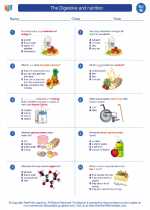 The Digestive and nutrition
The Digestive and nutrition  Worksheet/Answer key
Worksheet/Answer key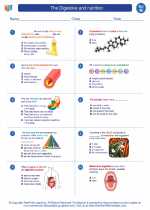 The Digestive and nutrition
The Digestive and nutrition  Worksheet/Answer key
Worksheet/Answer key The Digestive and nutrition
The Digestive and nutrition  Vocabulary/Answer key
Vocabulary/Answer key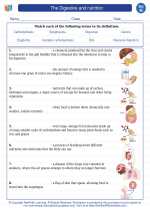 The Digestive and nutrition
The Digestive and nutrition  Vocabulary/Answer key
Vocabulary/Answer key The Digestive and nutrition
The Digestive and nutrition  Vocabulary/Answer key
Vocabulary/Answer key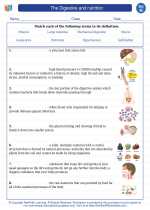 The Digestive and nutrition
The Digestive and nutrition  Vocabulary/Answer key
Vocabulary/Answer key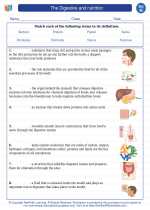 The Digestive and nutrition
The Digestive and nutrition  Vocabulary/Answer key
Vocabulary/Answer key The Digestive and nutrition
The Digestive and nutrition 

 Worksheet/Answer key
Worksheet/Answer key
 Worksheet/Answer key
Worksheet/Answer key
 Worksheet/Answer key
Worksheet/Answer key
 Vocabulary/Answer key
Vocabulary/Answer key
 Vocabulary/Answer key
Vocabulary/Answer key
 Vocabulary/Answer key
Vocabulary/Answer key
 Vocabulary/Answer key
Vocabulary/Answer key
 Vocabulary/Answer key
Vocabulary/Answer key

The resources above cover the following skills:
Reading Standards for Literacy in Science and Technical Subjects
Craft and Structure
Determine the meaning of symbols, key terms, and other domain-specific words and phrases as they are used in a specific scientific or technical context relevant to grades 6-8 texts and topics.